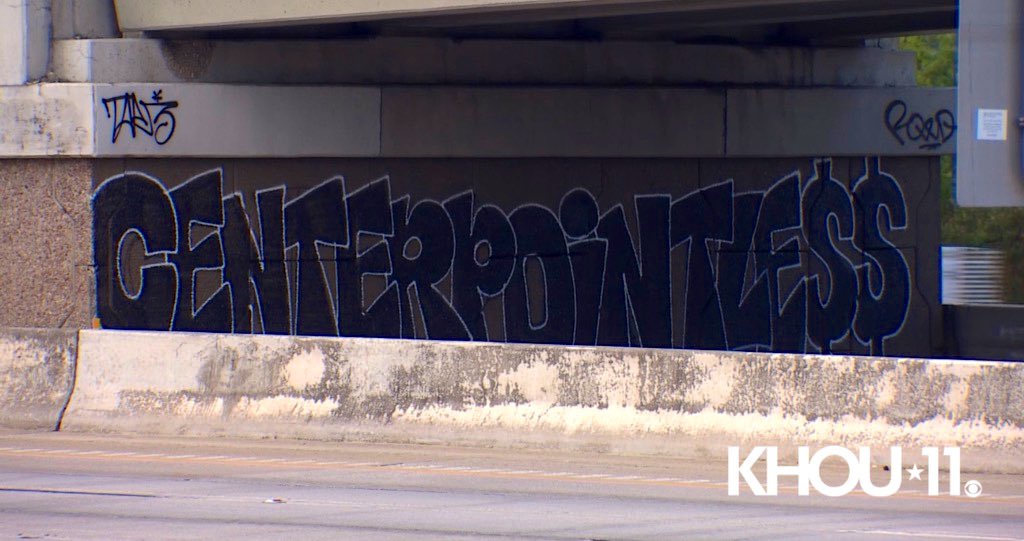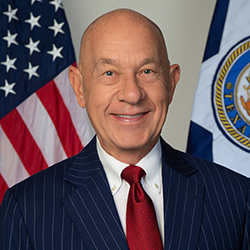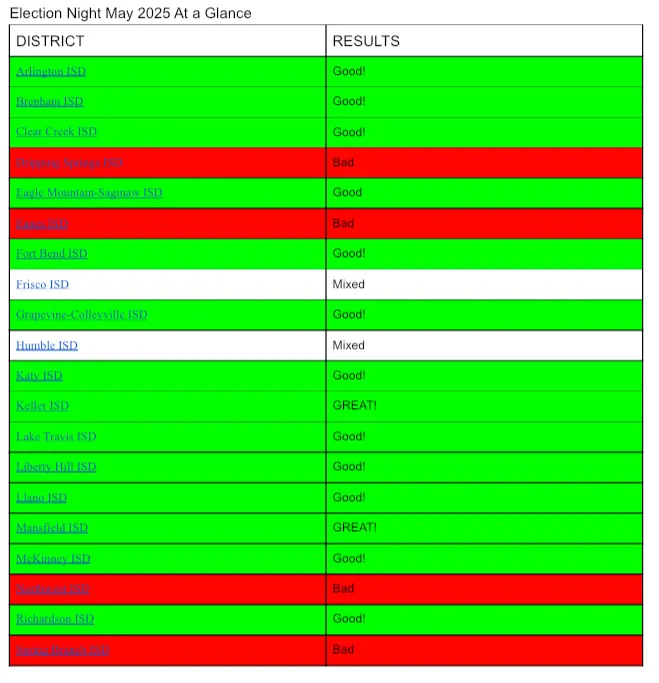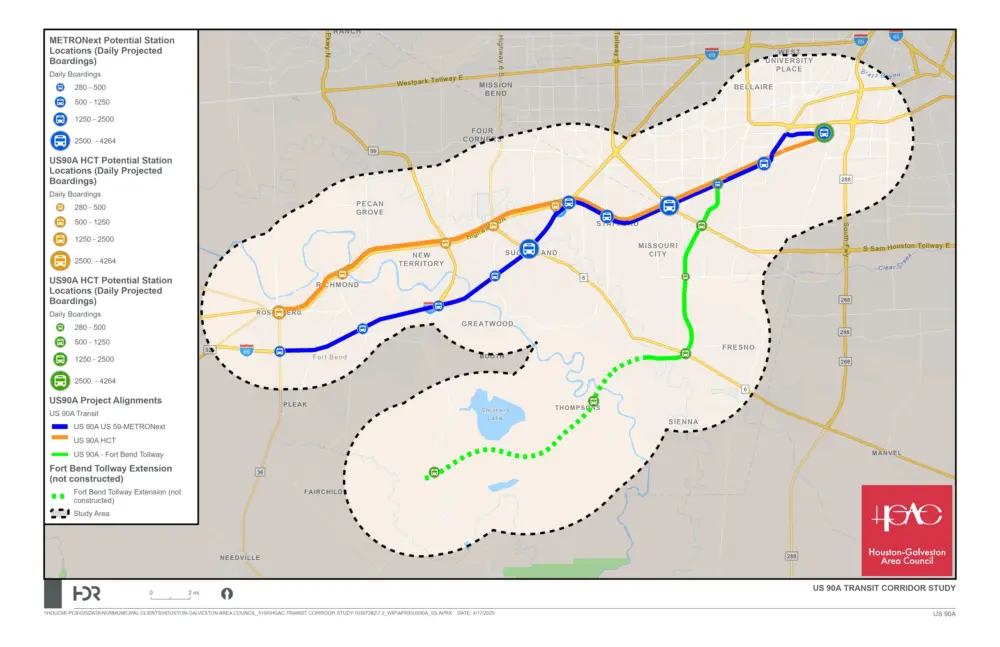No matter how much we might want to.

U.S. Health Secretary Robert F. Kennedy Jr. said during a visit to Texas on Tuesday that measles deserves less attention than other chronic diseases, while downplaying the number of deaths that have occurred in the state’s historic outbreak of the virus.
During a visit to Texas A&M University in College Station, Kennedy said that Europe’s measles deaths are higher than the U.S.’ “four deaths in 20 years,” two of whom were Texas children this year.
He also said more attention should be focused on chronic conditions like diabetes, as well as autism, which Kennedy has previously linked to the measles-mumps-rubella vaccine. The scientific community has widely debunked the theory, asserting the vaccine does not cause autism.
“Every child who gets measles gets a headline,” Kennedy said during the visit alongside Agriculture Secretary Brooke Rollins. “When I was kid, there were 2 million measles cases a year and nobody wrote about them.”
[…]
He also struck an optimistic note about the state of Texas’ outbreak. He said measles cases are slowing as officials are doing well to manage the outbreak.
While Tuesday’s state measles update shows the number of cases slowing in Gaines County, the heart of the outbreak, areas new to the outbreak, such as El Paso, are showing a faster rise in cases. On Tuesday, El Paso had 11 new cases, a 45% increase since Friday.
Texas health officials were more cautious about whether this slowing of infections could be maintained. On Tuesday the number of measles cases in Texas had risen to 663 cases in 26 counties. Of those, 87 patients had been hospitalized and two school-aged children have died since the outbreak began in January.
“It’s too soon to say. We can really only see trends looking backwards. We’d need to see a few weeks of decline to say that it was trending downward,” said Lara Anton, a spokesperson for the Texas Department of State Health Services. “There was a lot of travel for the Easter holiday so we’re watching to see if there is an increase in cases over the next few weeks.”
Dr. Peter Hotez, the dean of the National School of Tropical Medicine at Houston’s Baylor College of Medicine and vocal vaccine proponent, said work remains to contain the outbreak.
“The numbers are still going up,” Hotez said. “This is not a time to take your foot off the gas.”
What a fucking weirdo. There’s so much more that could be said and has been said about this guy, but I don’t have the energy for it now. There’s a very straightforward way to get everyone to stop talking about measles, but RFK Jr is the single biggest impediment to that. I’m going to stop here because I really need to take a few deep breaths and calm down.
In the meantime, measles keeps moving on.
Another North Texas county became the latest to report its first case of measles.
Denton County Public Health (DCPH) announced Wednesday that an adult of unknown vaccination status contracted measles. The case marks the first in Denton County since 2019 during a smaller statewide outbreak.
“Today’s case is further evidence that measles cases are on the rise – and the DFW area is no exception,” said Dr. Matt Richardson, Denton County’s Director of Public Health. “While we haven’t linked this case to an existing outbreak, it highlights two realities: vaccines are important, and if you have signs and symptoms, you should be tested.”
[…]
According to Denton County health officials, the person went to several places after exposure. Most notably, they attended the April 19 Texas Rangers game against the Los Angeles Dodgers at Globe Life Field in Arlington, officials said. 39,244 people attended that game.
Arlington is in Tarrant County, so it’s not just Denton that may be at risk. We don’t know yet if this case is connected to the bigger outbreak, but if this patient infected a whole bunch of other people while they were out and about and already sick, it kind of won’t matter. One outbreak, two outbreaks, who’s counting? This again is the concern about the virus turning up in more populated areas. As with the other instances, I very much hope it remains the only one.
And while we’re on the subject, here’s an El Paso update.
The West Texas measles outbreak has spread to the borderlands, with 38 cases confirmed in El Paso County as of Wednesday, April 30. There have also been 14 measles cases in the neighboring municipality of Juárez, Chihuahua and one case in Doña Ana County, New Mexico, according to the data from each state’s health department.
The number of cases in Chihuahua has now exceeded cases in Texas. The surge in measles infections led Mexico to release a U.S. travel alert and launch a vaccination campaign in public locations.
The highest numbers of confirmed measles infections this year are concentrated in Gaines County, Texas near Lubbock, where the outbreak began, and Cuauhtémoc municipality, Chihuahua in Mexico. The two areas have a shared history through their Mennonite communities, which have low vaccination rates, but the outbreak has since leaped to other communities with undervaccinated pockets.
Total measles cases statewide, per most recent data:
- Texas: 663
- New Mexico: 66
- Chihuahua: 713
More than 80 people in Texas, and three people in El Paso, have been hospitalized over the course of the outbreak. Based on rash onset, fewer than 10 of Texas’ current cases are active infections, according to the Texas Department of Health Service, which updates its dashboard every Tuesday and Friday morning. The state is also tracking measles cases that are not linked to the outbreak.
[…]
At least four people have died with measles during this outbreak, including a 31-year-old unvaccinated man from Ascensión, Chihuahua who died in Juárez, Mexican news outlets reported. The others were two unvaccinated school-aged children from Gaines County with no underlying health conditions and an unvaccinated adult from Lea County, New Mexico.
There was also an adult death in New Mexico, though that was a person who was discovered to have measles after passing. I didn’t realize that the Mexican case count was that high. At least they’re trying to do something about it.
And getting back to that punk RFK Jr, I commend you to read Your Local Epidemiologist’s account of meeting with several MAHA acolytes, along with several medical professional colleagues, for some open conversation. It went pretty well, and perhaps could be the beginning of some bridge-building. (These folks were also Trump voters because they believe in RFK Jr, but they are way more skeptical of the orange menace. So there’s some hope there as well.) I can say with complete certainty that I would not have had the patience to do what Dr. Jetelina and her colleagues did. More power to them and may they keep on doing it. I’ll do my part by staying away and trying to pick the right times to keep my mouth shut.
I will not keep my mouth shut about this, however, nor will I accept it as some kind of reasonable accommodation:
A Republican-backed bill that could make vaccination exemptions easier to obtain in Texas made it out of the House Public Health Committee on Thursday in a 7-6 vote along party lines.
If House Bill 1586, authored by state Rep. Lacey Hull, R-Houston, is approved by both chambers of the Legislature, the state’s current exemption form would be downloadable as a pdf, bypassing the need to contact the Texas Department of State Health Services directly and having a form sent to an applicant’s home address.
“This bill is about government efficiency,” Hull said on Monday when she laid out the details before the committee. Several health professionals testified against the bill, citing the state’s current measles outbreak in West Texas as evidence that falling vaccination rates put the entire state at greater risk for infections and disease.
Data shows a consistent rise in interest in obtaining exemptions to vaccines since 2003, when then-state Sen. Craig Estes offered a measure that allowed Texans to claim a conscientious exemption in addition to established exemptions based on medical and religious reasons.
Since 2018, the requests to the Texas state health agency for an exemption form have doubled from 45,900 to more than 93,000 in 2024. All requests for exemptions are granted.
You want even more measles, and whooping cough, that’s how you get it.
And finally, the latest numbers.
The measles outbreak centered in northwest Texas grew to 683 cases and spread to three new counties on Friday, according to health officials.
The latest update from the Texas Department of State Health Services adds 20 new cases since the agency’s last update on Tuesday. Upshur, Eastland and Hardeman counties all reported their first cases associated with the outbreak.
So far 89 people have been hospitalized for treatment and two children, an 8-year-old girl and a 6-year-old girl, died after contracting the virus. Neither child had received the measles, mumps and rubella vaccine, and they did not have any underlying medical conditions, according to the DSHS.
Nearly two-thirds of cases associated with the outbreak have been in children and teens. More than 95% have been in individuals who have not received the measles, mumps and rubella vaccine, or whose vaccination status is unknown.
The outbreak has also spread to neighboring states. New Mexico reported 67 cases on Friday, while Oklahoma reported 16. New Mexico has also reported one suspected measles death, an unvaccinated adult who tested positive for the virus after dying.
Texas has reported a total of 14 measles cases in 2025 that are not connected to the outbreak, most of them associated with international travel. Four have been in Harris County, one was in Fort Bend County and one was in Brazoria County.
Texas has reported 37 new cases of measles over the past week, according to DSHS data. The state has been reporting about 50 new cases of measles per week since Valentine’s Day, aside from a two-week surge in late March and early April.
The 20 new cases reported Friday include five in Upshur County, located east of Dallas. The DSHS reported cases in Upshur County in previous updates, but said health officials were still investigating whether they were connected to the outbreak.
Also reporting their first cases were Eastland County, located southwest of Dallas, and Hardeman County, located just south of the Oklahoma border. Eastland County reported two cases, while Hardeman County reported one.
El Paso County reported six new cases, while Lubbock County reported two. Dawson, Ector, Hockley and Potter counties each reported one new case.
The update was the first that did not include any new cases in Gaines County since the outbreak began in late January. The small county along the New Mexico border has reported a total of 396 cases, nearly 58% of all cases associated with the outbreak.
Of the 683 cases in Texas, 201 have been in children younger than 5 years old and 247 have been in children and teens between 5 and 17, according to the DSHS.
Only 30 cases have been in people who received at least one dose of MMR vaccine prior to an infection.
That’s a bit below the average, which is good and is hopefully the start of a trend. It would be lovely if this thing burned itself out before reaching the thousand cases mark. Let’s see what next week, and the week after that, look like before we begin to call it a trend.




















